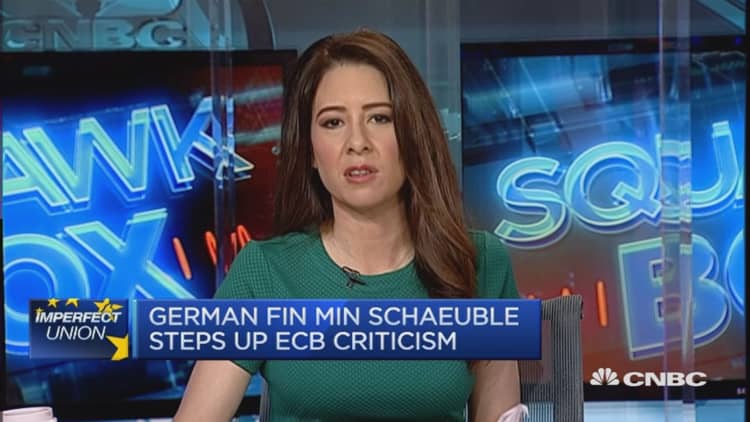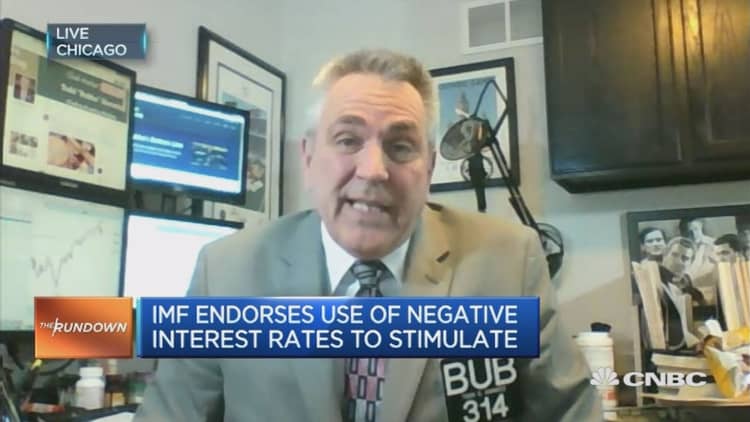
Negative interest rates risk hitting consumer spending and undermining the economic growth they are intended to encourage, the head of the world's largest asset management group has warned.
Larry Fink, chief executive of BlackRock, said that not enough attention was being given to the effect of negative rates on saving habits in a downbeat annual letter to his shareholders.
His intervention came as the International Monetary Fund added fuel to the debate on what effect negative interest rates were having on the global economy by warning that there were "limits on how far and for how long negative policy rates can go".
The fund said the introduction of negative policy rates by central banks such as the Bank of Japan had been broadly positive so far, but highlighted the danger of reaching a tipping point where people would start to hoard cash.
The Bank of Japan, the European Central Bank and four other central banks around the world have introduced overnight negative interest rates in an effort to bolster growth and raise inflation expectations. The monetary policy experiment is designed to encourage banks to lend, but its introduction has been accompanied by doubts over its effectiveness, concern about its effects on bank profitability and by widespread volatility in financial markets.

The comments come ahead of this week's spring meetings of the IMF and World Bank, where the fund is widely expected to further revise downwards its 3.4 per cent global growth forecast for this year.
Mr Fink said that low rates were preventing savers from getting the returns they needed to prepare for retirement, so they were increasingly being forced to divert money from current spending into savings.
More from the Financial Times:
China looks at revamp of sovereign bonds
YouTube music terms put labels in a spin
Venezuela risks a descent into chaos
"There has been plenty of discussion about how the extended period of low interest rates has contributed to inflation in asset prices," he wrote. "Not nearly enough attention has been paid to the toll these low rates — and now negative rates — are taking on the ability of investors to save and plan for the future."
A typical 35-year-old had to save more than three times as much to make the same retirement income when long-term interest rates were at 2 per cent than when they were at 5 per cent, said Mr Fink.
"This reality has profound implications for economic growth: consumers saving for retirement need to reduce spending... A monetary policy intended to spark growth, then, in fact, risks reducing consumer spending."
In a blog post published on Sunday, José Viñals, the IMF's top financial stability watchdog, and his co-authors said their analysis showed the economic benefits of the broad boost to demand from negative rates outweighed the potential costs.
But they also warned that there were limits to how far into negative territory rates could go before they started encouraging both companies and individuals to hoard cash.
There was also at least one piece of evidence that some of that hoarding may have already begun, the IMF economists wrote, with demand for bank notes rising in Switzerland, where the central bank introduced negative rates in December 2014.
"It's important to emphasize that, while monetary policy is critical to the battle against weak growth and deflationary pressures, there appear to be limits on how far and for how long negative policy rates can go," they wrote.


